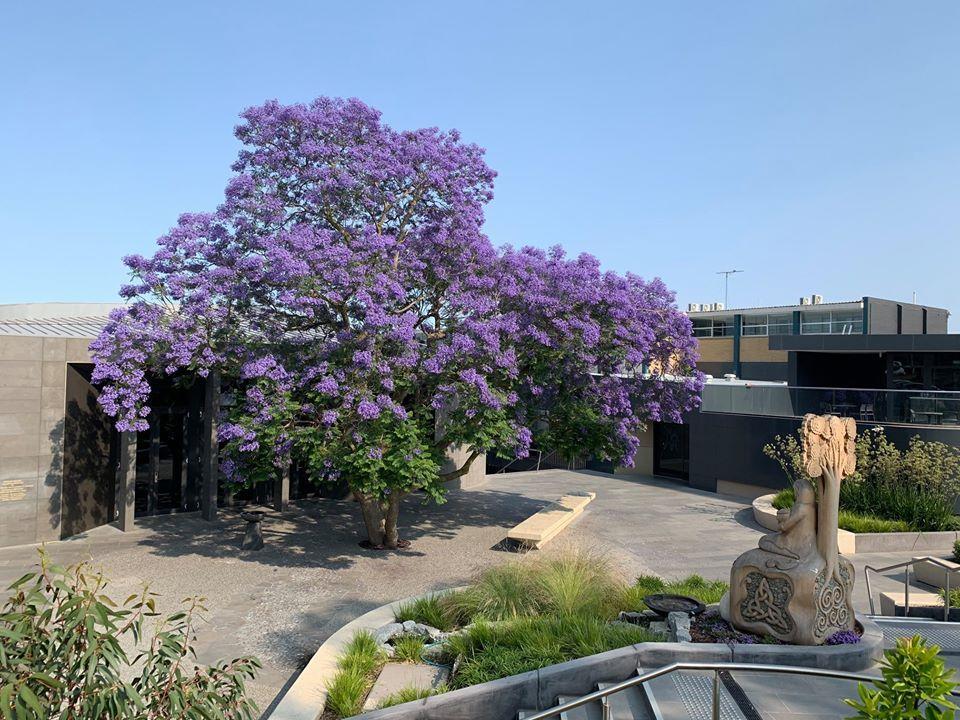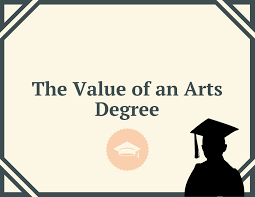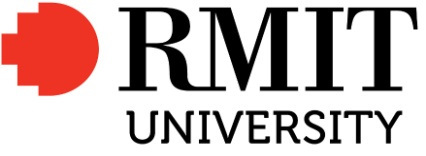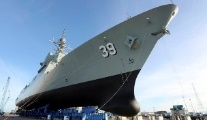
News and Events
Newsletter
27 May 2022
On Friday 20 May we gathered as a College for the High Achievers Assembly to recognise student academic success during 2021. It was a fantastic morning to be able to host some of our newest Old Collegians as they returned to the College. Here are some highlight achievements presented on the day.
Mr Willian Garvey, the College DUX for 2021 who achieved an impressive 98.0 ATAR.

Mr Joel Saxton was awarded the John O'Connor Award

Congratulations to all students in what was a particularly challenging year.
Congratulations to Julian Petropoulos, Damon Agius and Luca Scutella on competing at the ACC Culinary Competition on Wednesday 18 May at Parade College Bundoora.
The brief was to design and create a healthy two course meal using seasonal ingredients in 90 minutes. The boys designed and created roast pumpkin and ricotta ravioli served with creamy mushroom sauce, roasted tomatoes, rocket oil and parmesan crisps. Followed by apple crumble pie with olive oil pastry served with freshly squeezed apple granita, Greek yoghurt ice cream and honey drizzled fig.
The competition standard was extremely high and of restaurant quality. The boys showed excellent team work and communication and the judges were very impressed that they had made everything from scratch including their own pasta and pastry.
Congratulations on being awarded bronze ‘Australian Culinary Federation’ medals by the Australian Culinary Federation judges.
It was wonderful to hear the boys already talking tactics for next year on the way home!
We would like to acknowledge our other team members, Oscar Weir and Jack Kassis who were unable to join us today, but have made excellent contributions to team trainings.
A massive thank you to Mrs Mackenzie, Mrs Sabato and Mrs Bond for all their support and assistance with training and preparations.
The focus of this camp supported students to examine the relationships between humans and the outdoor environment since 1990. This camp is a case study exploring societal relationships with the Bunurong Coast reflected in different forms of conservation, recreation, primary industries and tourism practice.
Throughout their time on camp the students were able to visit Caldermeade Farm and Café to learn about dairy cattle farming, supported the Gippsland Conservation Society with tree maintenance as part of their revegetation program at Carney’s reserve, enjoyed visiting Phillip Island and learning about the little penguin conservation management strategies at the Phillip Island penguin parade, and of course hit the beach for some surfing and stand up paddle boarding.
Our Year 7's over the past week have been putting their creativity to the test with a "Design Your Own Pizza" assessment.
Our Year 9's were challenged to create there own noodle boxes.
Its great to see all of our students having a go and certainly producing some fantastic looking food
Well done boys!


As of May 2020, the Uniform Shop will be operating by appointment only. This will help alleviate lengthy queues during peak periods.
With the phasing in of the new Sun-smart bucket hats next term, we will be selling the remaining stock of SBC baseball caps for $8 each. Please note that the caps will not be available to purchase from October onwards but students will still be permitted to wear them.
Click here to make an appointment
If you know the sizes of the items you require, visit https://shop.sbc.vic.edu.au/ to order online.
For all other uniform enquiries, or to volunteer in the uniform shop, please email rbuhagiar@sbc.vic.edu.au or phone 9289 1176.
1982 Bendigo – St Bernard’s 150
Reference: Paul McAllister - Clairvaux 1982
A Run-a-thon/Relay, the Bendigo – St Bernard’s 150 was held on Wednesday, 30th June. This is the first time such a venture has been undertaken by St. Bernard’s. Fifteen runners from Years 9 – 12 and two teachers completed the course of 150 km from Bendigo to Essendon in 11 Hours.
The runners were driven to Bendigo on the Tuesday night by Brother Cunneen, Mr Spiller and Mr Donnelly. After a television interview on the major Bendigo network BCV 6, we bunked down for the night in St Killian’s Primary School Library.
At midnight we were ready to leave Bendigo Town Hall, as we thought, but mistook if for the Post Office!! The Mayor of Bendigo interviewed Mr Spiller and School Captain, Paul Quinn, before he presented us with letters to deliver to the Mayor of Essendon and to the school.
The runners battled on through dark, cold, and frosty conditions, with mist like low cloud. Highlights of the journey were when a cow charged Craig Rayner while he was running, Jeremy Sullivan missing the Tooborac turn-off and Brother Cunneen waiting with the bus for an hour before petrol stations opened, as we barely had enough fuel to carry us over the Great Divide. The police escorted the last few runners from Westfield Shoppingtown, Airport West.
We arrived at St Bernard’s, where the Mayor of Essendon greeted us along with the rousing cheers of the school. Money collected will go to the St. Vincent de Paul Society and a Student Council Fund. The money raised, exceeded $1,100. Thank you to all those who made this event possible, and we hope it will continue in future years.
Runners were: Mr Spiller, Mr Donnelly, Paul Quinn, Paul McGuire, Jeremy Sullivan,
Joe McConnell, Paul McAllister, Peter Mulkearns, Peter Noon, Tony Dineen, Des Burke,
Danny Sexton, Mark Daffy, Craig Whitehead, Mark Lynch, John Turville, Craig Rayner

Aviation at Swinburne
Working in air transport means viewing the world from a whole new perspective. Swinburne University offers courses in aviation management as well as professional piloting. Over and above these two courses, Swinburne also offers the Qantas Future Pilot Program and Jetstar cadet pilot training.
Find out more at Aviation at Swinburne.
WORK EXPERIENCE YEAR 10
Planning for the Industry Engagement week of 20-24 June began in late term 3, 2021.
For those students who have chosen the traditional work experience option (excluding Agere and Applied) they have until 30 May to return work experience forms. Students have been told that if they do not feel confident about meeting this deadline, they must contact either Mr. Rosel or Ms Miles urgently!
The weeklong Careers Capabilities Program has been capped at 30 students and is fast booking up.

Where can an Arts Degree take you?
There is often the debate about the value of an Arts Degree and what kind of role an Arts graduate could find in industry. The list of roles is quite varied, and includes -
Teaching & educational administration
International aid and trade agencies
Arts production and management
Public service and social welfare agencies
General management and administration (local and global)
Communications industry, publishing, media, and public relations
Tourism and hospitality
One of the very important things for students to note, is that an Arts student learns skills that are very transferrable in industry. These include communication skills, critical thinking and reading skills, analytical skills, and research skills – browse Career FAQS - What to do with your Arts Degree to learn more. Monash University recently shared an excellent YouTube video about a Career with a Bachelor of Arts.

Studying the Bachelor of Applied Innovation alongside another Degree
Swinburne University is introducing the Bachelor of Applied Innovation to be studied in conjunction with a number of other degrees. With just one extra year, students get to graduate with a double degree.
Depending on the degree a student chooses to study alongside the Bachelor of Applied Innovation, various skills will be developed, including –
a student’s collaboration, creativity, and complex problem-solving skills in real-world contexts.
how to apply innovation toolkits, prototype solutions and participate in challenges such as innovation sprints inspired by their passions and interests.
gaining the practical and technical skills to think strategically about how to employ innovative ideas in their studies and in the broader society.
learning how to make decisions of impact, based on analytical and strategic thinking, human understanding, and respect for future generations – with supporting technological know-how.
undertaking placements, internships or industry-based project work, and benefit from interdisciplinary, experiential learning. Students will tap into their creativity, curiosity, and leadership potential as they gain the skills to build a better future.
The following double degrees including Applied Innovation are on offer. Students are encouraged to browse the links that provide more details about the core and major units on offer in the Applied Innovation degree as they do differ from double degree to double degree:
Bachelor of Business Information Systems/Bachelor of Applied Innovation
Bachelor of Criminal Justice and Criminology/Bachelor of Applied Innovation
Bachelor of Engineering (Honours)/Bachelor of Applied Innovation
Bachelor of Games and Interactivity/Bachelor of Applied Innovation
Bachelor of Information and Communication Technology/Bachelor of Applied Innovation
Bachelor of Media and Communication/Bachelor of Applied Innovation
Bachelor of Screen Production/Bachelor of Applied Innovation

Physiotherapist, Chiropractor, Osteopath and Myotherapist
What is the difference? In November 2020 an article by Charlotte Ganderton and Matthew King was published on the ABC website addressing this very topic, and the fact that all four types of therapy come highly recommended to assist people in managing their aches and pains. To sum up the article –
In Australia, physiotherapists, osteopaths, and chiropractors have extensive university training and are registered with the Australian Health Practitioner Regulation Agency (AHPRA). Myotherapists complete an advanced diploma or bachelor’s degree in myotherapy or "musculoskeletal therapy” but are not registered with AHPRA.
The article goes on to state that a physiotherapist assesses your problem, provides a diagnosis, and helps you understand what's wrong while considering your general health, activities, and lifestyle. The physiotherapist treats your complaint with a variety of "active" therapies, such as exercise programs and hydrotherapy.
A chiropractor works on the diagnosis, treatment and prevention of mechanical disorders of the muscles, ligaments, tendons, bones and joints, and the effect on the nervous system.
They have an emphasis on passive manual treatments, including joint and soft-tissue manipulation, and spinal adjustments. They may also prescribe exercises to help you rehabilitate from your condition as well as provide dietary advice.
An osteopath focuses on the muscular and nervous systems, assessing the structure of the body to determine its impact on function. Treatment involves a combination of active and passive therapies, including joint manipulation and mobilisation, massage, as well as postural advice and exercise programs.
Finally, a myotherapist works to assist your aches and pains by focusing on the muscles and joints. They offer a range of mostly "hands-on" treatments including dry needling, massage, and joint mobilisation, but can also prescribe exercises.
Students can access the full article at Physiotherapist, chiropractor, osteopath and myotherapist: what's the difference and which one should I visit?

What does a Clinical Neuropsychologist do?
A clinical neuropsychologist specialises in the assessing and diagnosing of brain impairment and how this affects thinking skills, emotions, behaviour and personality. These specialists are also involved in the rehabilitation and management of the effects of brain impairment and often work with other health professionals.
To find out more about a career as a Clinical Neuropsychologist, visit Clinical Neuropsychologist.

Career in Veterinary Nursing
The Good Careers Guide * states that Veterinary Nurses provide support to veterinarians in the management and care of animals receiving medical and surgical treatment.
The Personal requirements for a Veterinary Nurse include -
Enjoying working with animals
Able to handle animals with confidence and patience
Able to make accurate observations
Having good communication skills
Having good organisational skills
Being able to work as part of a team
Being caring and understanding
Some of the tasks a Veterinary Nurse might have to do include –
Providing animal care advice, and preparing, delivering, and reviewing animal care education programs.
Assisting Veterinarians to administer anaesthetics and oxygen during operations.
Holding animals to allow examination and treatment by Veterinarians.
May act as receptionist, accept payments, and undertake clerical work.
Giving medications to animals.
Placing animals in cages for recovery from operations and monitoring their condition.
Maintaining stock control and records.
May perform diagnostic laboratory tests.
Preparing instruments and handing them to the Veterinarian.
Cleaning and sterilising examination tables and equipment.
* The Goods Careers Guide – Veterinary Nursing
Veterinary Nurses need to have a minimum of a Certificate IV in Veterinary Nursing, although qualifications can include diplomas and bachelor degrees. Some of these can be found at Box Hill Institute, Melbourne Polytechnic, and La Trobe University.

Accounting and Business Information Technology (Professional)
The Bachelor of Accounting and Business Information Technology (Professional) is a prestigious industry degree highly integrated with the real world to maximise your employment outcomes.
In this practical and hands-on course, students will:
Explore how people, information, computers, networks, and processes come together to create cohesive business solutions.
Learn how to use accounting systems to record and analyse business activities, prepare financial statements and management reports, and employ financial statements to guide investment decisions.
Understand how to use information from financial accounting systems to develop operating strategies and evaluate business performance.
Gain skills in designing, building, and implementing software solutions, analysing existing systems, and recommending solutions to address the information needs of organisations.
Leading Australian organisations are involved in the design of this course and in the professional development students. Industry partners include Deloitte, EY, NAB, PwC, Pitcher Partners, Siemens, Unico, and Viva Energy.
In the final year, there is a Business Information Systems Industry Project whereby students team up with other students to work on a real project briefed to them by an industry partner.
Find out more at Bachelor of Accounting and Business Information Technology (Professional).

Freight, Transport, and Logistics Industry
An industry that is continuing to grow is in transport and logistics. There are many careers in this diverse industry from actually driving a truck or train, to being part of the logistics team involved in the planning and distribution of freight and people. A particularly important part of this industry is in international freight – be it freight coming into Australia (imports) from all over the world, or cargo being sent from Australia (exports). People involved in this do not move the freight themselves, but instead act as an agent, connecting exporters, importers, and various transportation services like shipping, air freight, road transport, and rail.
An interesting website to visit is Make Your Move and students can also access videos of current students training in this industry.
There are two universities in Melbourne that offer dedicated logistic courses – RMIT and Victoria University. Students are encouraged to browse the following links providing more information about these courses:
Designed to help to develop a students’ knowledge and interest in contemporary issues central to the logistics and supply chain management industry. This unique degree prepares students for this essential industry, providing them with sought-after knowledge, and both hard and soft skills to allow them to thrive in a challenging and rewarding career. Throughout their studies, students will focus on developing end-to-end supply chain knowledge to deal with day-to-day and strategic supply chain issues.
Diploma of Logistics at RMIT
Designed to give students an understanding of key business areas while they develop specialist knowledge in transport and logistics planning, blockchain in supply chain management, and operations and risk management. This combination of skills, plus opportunities to engage in practical projects and collaborate globally with students and clients, will prepare students to move straight into the workforce after graduation, or to continue on into the bachelor degree.
Bachelor of Business (Supply Chain and Logistics Management) at Victoria University
Students enrol into the Bachelor of Business and study the Supply Chain and Logistics Management major. This major will enable students to pursue a business career in logistics and supply chain management, export/import operations. This major will also give students the skills to work closely with other companies in areas like manufacturing and services.
Logistics units/subjects are often offered in business degrees at universities.
Students are encouraged to browse VTAC for a comprehensive list of what is on offer across tertiary institutions in Victoria.
![]()
News from Victoria University
New Bachelor of Data Science
The Bachelor of Data Science has been designed for students with an interest in statistics, data analysis, machine learning and software development. The course has an industry-focused curriculum with a focus in practical expertise.
With market information and technology evolving at great speed, skilled professionals are needed to transform data into actionable insights for business. The Bachelor of Data Science is designed to meet this demand and give students the tools to analyse trends for business success, and launch a career perfectly aligned to industry needs.
Students will gain targeted expertise in:
mathematics and statistics
exploratory data analysis
machine learning
regression
classification
clustering techniques
text analytics
image and speech processing.
The VCE entry requirements are the completion of the VCE or equivalent, Units 3 and 4: a study score of at least 25 in English (EAL) or 20 in any other English, plus a study score of at least 20 in Mathematics (any).
Find out more about this course at Bachelor of Data Science.

Studying Design Courses at RMIT
Whether you’re passionate about graphic or interior design, merchandising or animation, study at the #1 design university in Asia Pacific.
RMIT offers a range of courses for students who are creative, curious, and keen on studying the creative arts.
Students are encouraged to browse this link to find out about all that is on offer.

Australian Apprenticeships and Traineeships Information Service
The Australian Apprenticeships and Traineeships Information Service (AATIS) offers pathways information to students, job hunters, career advisers and employers. The website, app and resources are used by schools, parents, friends, and supporters providing career planning and direction. AATIS is free to use and is funded by the Australian Government Department of Education, Skills and Employment.
The Australian Apprenticeships Pathways website - AAPathways - is a hub providing in-depth information about Australian apprenticeships and traineeships, including over 2,000 sample job and training descriptions, steps on how to find an apprenticeship, industry-based job pathways charts and practice literacy and numeracy quizzes.
Students are encouraged to browse both the AAPathways website, as well as the AATIS website.

Career in Naval Shipbuilding
With more than $160 billion invested by the Australian Government, and 15,000 people needed at the peak of work, Australia’s Naval Shipbuilding Industry is growing rapidly – this is great news for young Australians looking for a secure and dynamic career!
Modern shipbuilding is more than working with sheets of metal in shipyards. It is highly technical and incorporates cutting edge engineering, technology, and systems to ensure the ships and submarines are invisible to attack, can detect threats and ensure the safety of the crew on board.
In the coming years, Australia’s Naval Shipbuilding Industry is going to need people with lots of different skills to work in a wide range of roles – from city-based office roles to hands-on positions in the shipyards.
Students keen on finding out about studying to work in this industry, are encouraged to browse Naval Shipbuilding College to discover more. Students might also like to watch this YouTube Life as an Apprentice in Australia's Shipbuilding Industry clip.

Difference between a Bachelor of Laws and the Juris Doctor
The Good Universities Guide provides a useful summary of the many types of law degrees that one can study for in Australia. Two such courses are:
Bachelor of Laws (LLB) -
The Bachelor of Laws is typically a 4-year degree and is open to school leavers with a high enough ATAR (or equivalent) score. This undergraduate degree fulfills the academic side of qualifying for admission into legal practice.
Juris Doctor (JD) -
The Juris Doctor is a postgraduate degree that typically takes 3 years. It is equivalent to enrolling in a LLB as a graduate. The main advantage of a JD over a LLB is that programs are designed to suit graduate students. Students should note though, that the JD normally costs far more than the LLB as, apart from generally higher tuition fees, postgraduate status means students miss out on government financial concessions for undergraduate study.
Students are encouraged to browse Top Law Schools and Degrees in Australia to learn more.
![]()
New Bachelor of Criminology and Criminal Justice degree
The Thomas More Law School has introduced the Bachelor of Criminology and Criminal Justice.
Already proving popular with students in 2022, this course explores the causes of antisocial behaviour and develops the knowledge and expertise needed to make a valuable contribution in the criminal justice sector. Students gain a deep understanding of the complex causes and impact of crime, and the legal and social policies that keep society safe. The degree includes studies in forensic psychology, forensic science, cybercrime, border protection and biosecurity and understanding violence and trauma. All criminology students also undertake a community engagement in the third year of the course.
Find out more at Bachelor of Criminology and Criminal Justice.
This Sunday, 30 May, Luke Ryan (Year 9) and Jai Spindler (Year 8) will take to the fairway to compete in the Independent Secondary Schools Golf Grand Final
Congratulations on qualifying for the final and best of luck! The whole College is hoping that you can bring home the big prize.
Notice of temporary closure - Carpark on 41 Rosehill Rd
On Monday 30 May and Tuesday 31 May the carpark at the College accessible via 41 Rosehill Rd will be temporarily closed due to the on-going construction work of the new senior building.
We anticipate access to this carpark to be available again from Wednesday 1 June
Apologies for any inconveniences this may cause.
On Friday 20 May we gathered as a College for the High Achievers Assembly to recognise student academic success during 2021. It was a fantastic morning to be able to host some of our newest Old Collegians as they returned to the College. Here are some highlight achievements presented on the day.
Mr Willian Garvey, the College DUX for 2021 who achieved an impressive 98.0 ATAR.

Mr Joel Saxton was awarded the John O'Connor Award

Congratulations to all students in what was a particularly challenging year.
Congratulations to Julian Petropoulos, Damon Agius and Luca Scutella on competing at the ACC Culinary Competition on Wednesday 18 May at Parade College Bundoora.
The brief was to design and create a healthy two course meal using seasonal ingredients in 90 minutes. The boys designed and created roast pumpkin and ricotta ravioli served with creamy mushroom sauce, roasted tomatoes, rocket oil and parmesan crisps. Followed by apple crumble pie with olive oil pastry served with freshly squeezed apple granita, Greek yoghurt ice cream and honey drizzled fig.
The competition standard was extremely high and of restaurant quality. The boys showed excellent team work and communication and the judges were very impressed that they had made everything from scratch including their own pasta and pastry.
Congratulations on being awarded bronze ‘Australian Culinary Federation’ medals by the Australian Culinary Federation judges.
It was wonderful to hear the boys already talking tactics for next year on the way home!
We would like to acknowledge our other team members, Oscar Weir and Jack Kassis who were unable to join us today, but have made excellent contributions to team trainings.
A massive thank you to Mrs Mackenzie, Mrs Sabato and Mrs Bond for all their support and assistance with training and preparations.
The focus of this camp supported students to examine the relationships between humans and the outdoor environment since 1990. This camp is a case study exploring societal relationships with the Bunurong Coast reflected in different forms of conservation, recreation, primary industries and tourism practice.
Throughout their time on camp the students were able to visit Caldermeade Farm and Café to learn about dairy cattle farming, supported the Gippsland Conservation Society with tree maintenance as part of their revegetation program at Carney’s reserve, enjoyed visiting Phillip Island and learning about the little penguin conservation management strategies at the Phillip Island penguin parade, and of course hit the beach for some surfing and stand up paddle boarding.
Our Year 7's over the past week have been putting their creativity to the test with a "Design Your Own Pizza" assessment.
Our Year 9's were challenged to create there own noodle boxes.
Its great to see all of our students having a go and certainly producing some fantastic looking food
Well done boys!


As of May 2020, the Uniform Shop will be operating by appointment only. This will help alleviate lengthy queues during peak periods.
With the phasing in of the new Sun-smart bucket hats next term, we will be selling the remaining stock of SBC baseball caps for $8 each. Please note that the caps will not be available to purchase from October onwards but students will still be permitted to wear them.
Click here to make an appointment
If you know the sizes of the items you require, visit https://shop.sbc.vic.edu.au/ to order online.
For all other uniform enquiries, or to volunteer in the uniform shop, please email rbuhagiar@sbc.vic.edu.au or phone 9289 1176.
1982 Bendigo – St Bernard’s 150
Reference: Paul McAllister - Clairvaux 1982
A Run-a-thon/Relay, the Bendigo – St Bernard’s 150 was held on Wednesday, 30th June. This is the first time such a venture has been undertaken by St. Bernard’s. Fifteen runners from Years 9 – 12 and two teachers completed the course of 150 km from Bendigo to Essendon in 11 Hours.
The runners were driven to Bendigo on the Tuesday night by Brother Cunneen, Mr Spiller and Mr Donnelly. After a television interview on the major Bendigo network BCV 6, we bunked down for the night in St Killian’s Primary School Library.
At midnight we were ready to leave Bendigo Town Hall, as we thought, but mistook if for the Post Office!! The Mayor of Bendigo interviewed Mr Spiller and School Captain, Paul Quinn, before he presented us with letters to deliver to the Mayor of Essendon and to the school.
The runners battled on through dark, cold, and frosty conditions, with mist like low cloud. Highlights of the journey were when a cow charged Craig Rayner while he was running, Jeremy Sullivan missing the Tooborac turn-off and Brother Cunneen waiting with the bus for an hour before petrol stations opened, as we barely had enough fuel to carry us over the Great Divide. The police escorted the last few runners from Westfield Shoppingtown, Airport West.
We arrived at St Bernard’s, where the Mayor of Essendon greeted us along with the rousing cheers of the school. Money collected will go to the St. Vincent de Paul Society and a Student Council Fund. The money raised, exceeded $1,100. Thank you to all those who made this event possible, and we hope it will continue in future years.
Runners were: Mr Spiller, Mr Donnelly, Paul Quinn, Paul McGuire, Jeremy Sullivan,
Joe McConnell, Paul McAllister, Peter Mulkearns, Peter Noon, Tony Dineen, Des Burke,
Danny Sexton, Mark Daffy, Craig Whitehead, Mark Lynch, John Turville, Craig Rayner

Aviation at Swinburne
Working in air transport means viewing the world from a whole new perspective. Swinburne University offers courses in aviation management as well as professional piloting. Over and above these two courses, Swinburne also offers the Qantas Future Pilot Program and Jetstar cadet pilot training.
Find out more at Aviation at Swinburne.
WORK EXPERIENCE YEAR 10
Planning for the Industry Engagement week of 20-24 June began in late term 3, 2021.
For those students who have chosen the traditional work experience option (excluding Agere and Applied) they have until 30 May to return work experience forms. Students have been told that if they do not feel confident about meeting this deadline, they must contact either Mr. Rosel or Ms Miles urgently!
The weeklong Careers Capabilities Program has been capped at 30 students and is fast booking up.

Where can an Arts Degree take you?
There is often the debate about the value of an Arts Degree and what kind of role an Arts graduate could find in industry. The list of roles is quite varied, and includes -
Teaching & educational administration
International aid and trade agencies
Arts production and management
Public service and social welfare agencies
General management and administration (local and global)
Communications industry, publishing, media, and public relations
Tourism and hospitality
One of the very important things for students to note, is that an Arts student learns skills that are very transferrable in industry. These include communication skills, critical thinking and reading skills, analytical skills, and research skills – browse Career FAQS - What to do with your Arts Degree to learn more. Monash University recently shared an excellent YouTube video about a Career with a Bachelor of Arts.

Studying the Bachelor of Applied Innovation alongside another Degree
Swinburne University is introducing the Bachelor of Applied Innovation to be studied in conjunction with a number of other degrees. With just one extra year, students get to graduate with a double degree.
Depending on the degree a student chooses to study alongside the Bachelor of Applied Innovation, various skills will be developed, including –
a student’s collaboration, creativity, and complex problem-solving skills in real-world contexts.
how to apply innovation toolkits, prototype solutions and participate in challenges such as innovation sprints inspired by their passions and interests.
gaining the practical and technical skills to think strategically about how to employ innovative ideas in their studies and in the broader society.
learning how to make decisions of impact, based on analytical and strategic thinking, human understanding, and respect for future generations – with supporting technological know-how.
undertaking placements, internships or industry-based project work, and benefit from interdisciplinary, experiential learning. Students will tap into their creativity, curiosity, and leadership potential as they gain the skills to build a better future.
The following double degrees including Applied Innovation are on offer. Students are encouraged to browse the links that provide more details about the core and major units on offer in the Applied Innovation degree as they do differ from double degree to double degree:
Bachelor of Business Information Systems/Bachelor of Applied Innovation
Bachelor of Criminal Justice and Criminology/Bachelor of Applied Innovation
Bachelor of Engineering (Honours)/Bachelor of Applied Innovation
Bachelor of Games and Interactivity/Bachelor of Applied Innovation
Bachelor of Information and Communication Technology/Bachelor of Applied Innovation
Bachelor of Media and Communication/Bachelor of Applied Innovation
Bachelor of Screen Production/Bachelor of Applied Innovation

Physiotherapist, Chiropractor, Osteopath and Myotherapist
What is the difference? In November 2020 an article by Charlotte Ganderton and Matthew King was published on the ABC website addressing this very topic, and the fact that all four types of therapy come highly recommended to assist people in managing their aches and pains. To sum up the article –
In Australia, physiotherapists, osteopaths, and chiropractors have extensive university training and are registered with the Australian Health Practitioner Regulation Agency (AHPRA). Myotherapists complete an advanced diploma or bachelor’s degree in myotherapy or "musculoskeletal therapy” but are not registered with AHPRA.
The article goes on to state that a physiotherapist assesses your problem, provides a diagnosis, and helps you understand what's wrong while considering your general health, activities, and lifestyle. The physiotherapist treats your complaint with a variety of "active" therapies, such as exercise programs and hydrotherapy.
A chiropractor works on the diagnosis, treatment and prevention of mechanical disorders of the muscles, ligaments, tendons, bones and joints, and the effect on the nervous system.
They have an emphasis on passive manual treatments, including joint and soft-tissue manipulation, and spinal adjustments. They may also prescribe exercises to help you rehabilitate from your condition as well as provide dietary advice.
An osteopath focuses on the muscular and nervous systems, assessing the structure of the body to determine its impact on function. Treatment involves a combination of active and passive therapies, including joint manipulation and mobilisation, massage, as well as postural advice and exercise programs.
Finally, a myotherapist works to assist your aches and pains by focusing on the muscles and joints. They offer a range of mostly "hands-on" treatments including dry needling, massage, and joint mobilisation, but can also prescribe exercises.
Students can access the full article at Physiotherapist, chiropractor, osteopath and myotherapist: what's the difference and which one should I visit?

What does a Clinical Neuropsychologist do?
A clinical neuropsychologist specialises in the assessing and diagnosing of brain impairment and how this affects thinking skills, emotions, behaviour and personality. These specialists are also involved in the rehabilitation and management of the effects of brain impairment and often work with other health professionals.
To find out more about a career as a Clinical Neuropsychologist, visit Clinical Neuropsychologist.

Career in Veterinary Nursing
The Good Careers Guide * states that Veterinary Nurses provide support to veterinarians in the management and care of animals receiving medical and surgical treatment.
The Personal requirements for a Veterinary Nurse include -
Enjoying working with animals
Able to handle animals with confidence and patience
Able to make accurate observations
Having good communication skills
Having good organisational skills
Being able to work as part of a team
Being caring and understanding
Some of the tasks a Veterinary Nurse might have to do include –
Providing animal care advice, and preparing, delivering, and reviewing animal care education programs.
Assisting Veterinarians to administer anaesthetics and oxygen during operations.
Holding animals to allow examination and treatment by Veterinarians.
May act as receptionist, accept payments, and undertake clerical work.
Giving medications to animals.
Placing animals in cages for recovery from operations and monitoring their condition.
Maintaining stock control and records.
May perform diagnostic laboratory tests.
Preparing instruments and handing them to the Veterinarian.
Cleaning and sterilising examination tables and equipment.
* The Goods Careers Guide – Veterinary Nursing
Veterinary Nurses need to have a minimum of a Certificate IV in Veterinary Nursing, although qualifications can include diplomas and bachelor degrees. Some of these can be found at Box Hill Institute, Melbourne Polytechnic, and La Trobe University.

Accounting and Business Information Technology (Professional)
The Bachelor of Accounting and Business Information Technology (Professional) is a prestigious industry degree highly integrated with the real world to maximise your employment outcomes.
In this practical and hands-on course, students will:
Explore how people, information, computers, networks, and processes come together to create cohesive business solutions.
Learn how to use accounting systems to record and analyse business activities, prepare financial statements and management reports, and employ financial statements to guide investment decisions.
Understand how to use information from financial accounting systems to develop operating strategies and evaluate business performance.
Gain skills in designing, building, and implementing software solutions, analysing existing systems, and recommending solutions to address the information needs of organisations.
Leading Australian organisations are involved in the design of this course and in the professional development students. Industry partners include Deloitte, EY, NAB, PwC, Pitcher Partners, Siemens, Unico, and Viva Energy.
In the final year, there is a Business Information Systems Industry Project whereby students team up with other students to work on a real project briefed to them by an industry partner.
Find out more at Bachelor of Accounting and Business Information Technology (Professional).

Freight, Transport, and Logistics Industry
An industry that is continuing to grow is in transport and logistics. There are many careers in this diverse industry from actually driving a truck or train, to being part of the logistics team involved in the planning and distribution of freight and people. A particularly important part of this industry is in international freight – be it freight coming into Australia (imports) from all over the world, or cargo being sent from Australia (exports). People involved in this do not move the freight themselves, but instead act as an agent, connecting exporters, importers, and various transportation services like shipping, air freight, road transport, and rail.
An interesting website to visit is Make Your Move and students can also access videos of current students training in this industry.
There are two universities in Melbourne that offer dedicated logistic courses – RMIT and Victoria University. Students are encouraged to browse the following links providing more information about these courses:
Designed to help to develop a students’ knowledge and interest in contemporary issues central to the logistics and supply chain management industry. This unique degree prepares students for this essential industry, providing them with sought-after knowledge, and both hard and soft skills to allow them to thrive in a challenging and rewarding career. Throughout their studies, students will focus on developing end-to-end supply chain knowledge to deal with day-to-day and strategic supply chain issues.
Diploma of Logistics at RMIT
Designed to give students an understanding of key business areas while they develop specialist knowledge in transport and logistics planning, blockchain in supply chain management, and operations and risk management. This combination of skills, plus opportunities to engage in practical projects and collaborate globally with students and clients, will prepare students to move straight into the workforce after graduation, or to continue on into the bachelor degree.
Bachelor of Business (Supply Chain and Logistics Management) at Victoria University
Students enrol into the Bachelor of Business and study the Supply Chain and Logistics Management major. This major will enable students to pursue a business career in logistics and supply chain management, export/import operations. This major will also give students the skills to work closely with other companies in areas like manufacturing and services.
Logistics units/subjects are often offered in business degrees at universities.
Students are encouraged to browse VTAC for a comprehensive list of what is on offer across tertiary institutions in Victoria.
![]()
News from Victoria University
New Bachelor of Data Science
The Bachelor of Data Science has been designed for students with an interest in statistics, data analysis, machine learning and software development. The course has an industry-focused curriculum with a focus in practical expertise.
With market information and technology evolving at great speed, skilled professionals are needed to transform data into actionable insights for business. The Bachelor of Data Science is designed to meet this demand and give students the tools to analyse trends for business success, and launch a career perfectly aligned to industry needs.
Students will gain targeted expertise in:
mathematics and statistics
exploratory data analysis
machine learning
regression
classification
clustering techniques
text analytics
image and speech processing.
The VCE entry requirements are the completion of the VCE or equivalent, Units 3 and 4: a study score of at least 25 in English (EAL) or 20 in any other English, plus a study score of at least 20 in Mathematics (any).
Find out more about this course at Bachelor of Data Science.

Studying Design Courses at RMIT
Whether you’re passionate about graphic or interior design, merchandising or animation, study at the #1 design university in Asia Pacific.
RMIT offers a range of courses for students who are creative, curious, and keen on studying the creative arts.
Students are encouraged to browse this link to find out about all that is on offer.

Australian Apprenticeships and Traineeships Information Service
The Australian Apprenticeships and Traineeships Information Service (AATIS) offers pathways information to students, job hunters, career advisers and employers. The website, app and resources are used by schools, parents, friends, and supporters providing career planning and direction. AATIS is free to use and is funded by the Australian Government Department of Education, Skills and Employment.
The Australian Apprenticeships Pathways website - AAPathways - is a hub providing in-depth information about Australian apprenticeships and traineeships, including over 2,000 sample job and training descriptions, steps on how to find an apprenticeship, industry-based job pathways charts and practice literacy and numeracy quizzes.
Students are encouraged to browse both the AAPathways website, as well as the AATIS website.

Career in Naval Shipbuilding
With more than $160 billion invested by the Australian Government, and 15,000 people needed at the peak of work, Australia’s Naval Shipbuilding Industry is growing rapidly – this is great news for young Australians looking for a secure and dynamic career!
Modern shipbuilding is more than working with sheets of metal in shipyards. It is highly technical and incorporates cutting edge engineering, technology, and systems to ensure the ships and submarines are invisible to attack, can detect threats and ensure the safety of the crew on board.
In the coming years, Australia’s Naval Shipbuilding Industry is going to need people with lots of different skills to work in a wide range of roles – from city-based office roles to hands-on positions in the shipyards.
Students keen on finding out about studying to work in this industry, are encouraged to browse Naval Shipbuilding College to discover more. Students might also like to watch this YouTube Life as an Apprentice in Australia's Shipbuilding Industry clip.

Difference between a Bachelor of Laws and the Juris Doctor
The Good Universities Guide provides a useful summary of the many types of law degrees that one can study for in Australia. Two such courses are:
Bachelor of Laws (LLB) -
The Bachelor of Laws is typically a 4-year degree and is open to school leavers with a high enough ATAR (or equivalent) score. This undergraduate degree fulfills the academic side of qualifying for admission into legal practice.
Juris Doctor (JD) -
The Juris Doctor is a postgraduate degree that typically takes 3 years. It is equivalent to enrolling in a LLB as a graduate. The main advantage of a JD over a LLB is that programs are designed to suit graduate students. Students should note though, that the JD normally costs far more than the LLB as, apart from generally higher tuition fees, postgraduate status means students miss out on government financial concessions for undergraduate study.
Students are encouraged to browse Top Law Schools and Degrees in Australia to learn more.
![]()
New Bachelor of Criminology and Criminal Justice degree
The Thomas More Law School has introduced the Bachelor of Criminology and Criminal Justice.
Already proving popular with students in 2022, this course explores the causes of antisocial behaviour and develops the knowledge and expertise needed to make a valuable contribution in the criminal justice sector. Students gain a deep understanding of the complex causes and impact of crime, and the legal and social policies that keep society safe. The degree includes studies in forensic psychology, forensic science, cybercrime, border protection and biosecurity and understanding violence and trauma. All criminology students also undertake a community engagement in the third year of the course.
Find out more at Bachelor of Criminology and Criminal Justice.
This Sunday, 30 May, Luke Ryan (Year 9) and Jai Spindler (Year 8) will take to the fairway to compete in the Independent Secondary Schools Golf Grand Final
Congratulations on qualifying for the final and best of luck! The whole College is hoping that you can bring home the big prize.
Notice of temporary closure - Carpark on 41 Rosehill Rd
On Monday 30 May and Tuesday 31 May the carpark at the College accessible via 41 Rosehill Rd will be temporarily closed due to the on-going construction work of the new senior building.
We anticipate access to this carpark to be available again from Wednesday 1 June
Apologies for any inconveniences this may cause.